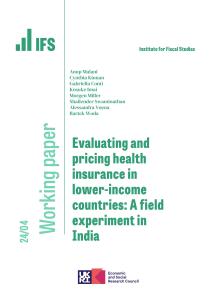Background
Visual impairment has been associated with lower cognitive ability among older adults, yet little is known about whether improving visual function with cataract surgery would be associated with slower cognitive decline. This study aimed to assess whether trajectories of cognitive decline differed before and after cataract surgery and compare those trajectories between older adults with cataract surgery and without cataract.
Methods and findings
Data were drawn from the English Longitudinal Study of Ageing (ELSA) Wave 1 (2002/03) until Wave 7 (2014/15). The study population consisted of 2,068 individuals who underwent cataract surgery between Wave 2 and Wave 6 as the treatment group and 3,636 individuals with no cataract as the control group. We included only respondents who took part in a minimum three waves. Propensity score matching method was used to match the individuals in the treatment group with those in the control group. After we put an “artificial” intervention point for the individuals in the control group at the point that the matched person has cataract surgery, spline method was used to identify differences in cognitive trajectories pre- and post-cataract surgery. In the treatment group, we found that cataract surgery was positively associated with episodic memory scores after controlling for the potential covariates (β = 4.23, p<0.001). Episodic memory scores declined with older age, but the decline in episodic memory scores was slower after cataract surgery (β = -0.05, p<0.001) than before cataract surgery (β = -0.1, p<0.001). Although the episodic memory among respondents in the control group before intervention (β = -0.08, p<0.001) declined slower than those in the intervention group (β = -0.1, p<0.001), the declines in episodic memory scores were similar in both groups after the intervention (control: β = -0.05, p<0.001; intervention: β = -0.05, p<0.001).
Conclusions
Cataract surgery may have a positive impact on trajectories of cognitive decline in later life. Further research is required to identify the mechanism to explain the association between cataract surgery and cognitive ageing, and whether early intervention towards vision correction results in a reduction in dementia risk.








